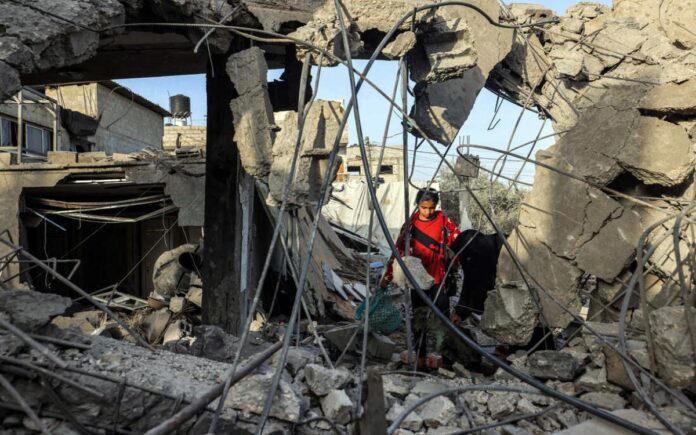Riyadh: Palestinian President Mahmoud Abbas has issued a plea to the United States, emphasizing its pivotal role in halting Israel’s impending offensive in Rafah, the densely populated southern city in Gaza where over a million civilians seek refuge.
Expressing concern over the potential mass exodus of Palestinians in the event of an attack, Abbas underscored the urgent need for US intervention during a session at the World Economic Forum (WEF) in Riyadh, Saudi Arabia. Despite his authority being confined to parts of the occupied West Bank, Abbas stressed the catastrophic consequences of any military action in Rafah, which remains under Hamas control since 2007.
Reaffirming his stance, US President Joe Biden conveyed a clear message to Israeli Prime Minister Benjamin Netanyahu during a recent call, emphasizing the necessity of averting an assault on Rafah. However, the US administration reiterated its stance that support for such an operation hinges upon the presentation of a credible plan to safeguard civilian lives.
The precarious situation in Rafah, where more than half of Gaza’s population resides amidst dire conditions, has intensified concerns over the humanitarian crisis. Displaced individuals report shortages of essential supplies like food, water, and medication, exacerbating an already dire situation.
While the specifics of Biden’s conversation with Netanyahu remain undisclosed, US national security spokesman John Kirby has indicated that Israel has agreed to engage with US concerns before proceeding with any offensive.
Also Read | Israeli Airstrikes Claim Lives of 20 Palestinians in Rafah, Renewed Gaza Ceasefire Talks on the Horizon
In parallel efforts, US Secretary of State Antony Blinken has commenced discussions in Riyadh, where he is scheduled to meet with Abbas at the onset of a new diplomatic initiative in the Middle East.
Meanwhile, internal divisions within Israel’s governing coalition have been exposed as indirect negotiations between Israel and Hamas gain traction. Benny Gantz, a member of the war cabinet and opposition figure, emphasized the imperative of securing the release of hostages as a precondition for any military action in Rafah. In contrast, Finance Minister Bezalel Smotrich advocated for the continuation of the offensive, underscoring the contentious nature of the issue within Israeli politics.
Israel’s foreign minister hinted at the possibility of suspending the incursion pending a hostage deal, aligning with Netanyahu’s assertion that the offensive represents a pivotal step in combating Hamas. The Israeli military’s approval to proceed with the operation, reportedly focused on Rafah, underscores the gravity of the situation.
Despite ongoing mediation efforts by Egypt and Qatar, significant disparities persist between the demands of Hamas and Israel. Hamas seeks a permanent cessation of hostilities and the withdrawal of Israeli forces from Gaza, while Israel insists on the dismantlement of Hamas and the unconditional release of hostages.
As tensions escalate, satellite images reveal the construction of tent encampments near the Gaza coast, signaling preparations for an influx of displaced individuals from Rafah and neighboring areas. The plight of Palestinian refugees remains a focal point of international concern, with Egypt and other Arab states condemning any forced displacement as tantamount to the expulsion of Palestinians from their land.
Amidst the protracted conflict, both sides have suffered significant losses, with casualties mounting and civilian infrastructure ravaged. The unresolved humanitarian crisis in Gaza underscores the urgency for a sustainable ceasefire and a lasting resolution to the conflict.



